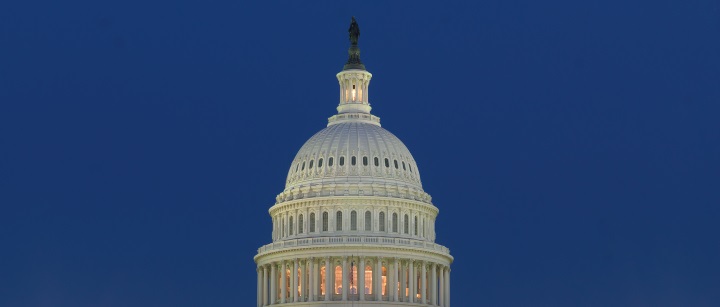Listen to the article
The ongoing government shutdown has spotlighted conflicting claims about Democrats’ funding proposals, with Republicans accusing Democrats of demanding billions for international projects while Democrats maintain their focus is on protecting healthcare for Americans.
House Speaker Mike Johnson recently claimed that Democrats are demanding “up to $5 billion of American taxpayer funds for wasteful spending for international projects,” citing specific examples such as “$24.6 million for climate resilience in Honduras” and “$3.9 million for LGBTQI+ democracy grants in the Western Balkans.”
When questioned about these alleged demands, House Minority Leader Hakeem Jeffries dismissed the claims entirely, stating, “We have no idea what you’re talking about, or what Republican extremist fed you those talking points.”
The dispute centers on nearly $5 billion in unobligated foreign aid funds that the Trump administration moved to rescind through a “pocket rescission” in late August. This maneuver allowed the White House to withhold funds less than 45 days before the fiscal year’s end on September 30, effectively canceling the appropriations before Congress could respond.
Democrats challenged the legality of this action, with a U.S. District Court judge initially ruling against the administration. However, the Supreme Court, in a 6-3 decision along ideological lines, ultimately allowed Trump to continue withholding the funds.
The Democratic continuing resolution, introduced on September 17, did propose extending the availability of the nearly $5 billion for the State Department to spend in fiscal year 2026. The legislation also aimed to permanently extend enhanced Affordable Care Act subsidies and reverse Republican changes to Medicaid.
Crucially, however, the Democratic proposal did not specify which international projects should receive funding. Instead, it would provide general funding for State Department and foreign aid accounts from which such projects had been funded in the past.
Joshua Sewell, director of research and policy for the nonpartisan group Taxpayers for Common Sense, clarified: “The Democrat-backed fiscal year 2026 continuing resolution would not automatically fund those specific projects, but it would provide funding for the State Department and foreign aid accounts from which those projects received funding in the past.”
A House Democratic aide emphasized that if Congress voted to make the funding available for the 2026 fiscal cycle, it would be the Trump administration that would determine which foreign projects receive support. The aide noted that grants mentioned by Johnson “have been terminated already” by the Trump administration.
The Democratic proposal also included a provision to prevent future administrations from making rescissions within 90 days of when approved funding is set to expire, addressing concerns about the pocket rescission tactic.
Speaker Johnson’s office defended his characterization, saying he “clearly and accurately stated what is plainly written in Democrats’ own proposal which includes a demand that President Trump’s rescissions be removed.” While the continuing resolution would indeed extend the availability of funds that Trump withheld, it does not earmark them for the specific projects Johnson cited.
The government shutdown, which began October 1, continues as Republicans push for a “clean” continuing resolution with no added provisions, while Democrats primarily seek to extend enhanced ACA subsidies and reverse certain Medicaid changes that became law under the Trump administration.
As the stalemate persists, the dispute over foreign aid funding illustrates how competing narratives about budget priorities have complicated efforts to reach a compromise and reopen the government.
Fact Checker
Verify the accuracy of this article using The Disinformation Commission analysis and real-time sources.




9 Comments
As someone interested in global affairs, I’m glad to see the topic of foreign aid funding getting attention. It’s a complex issue with important nuances, and I hope the debate leads to more transparency and accountability.
This is a challenging topic with valid concerns on both sides. While fiscal responsibility is important, I hope the focus remains on the real-world impact of foreign aid programs and ensuring resources reach those most in need.
Well said. Maintaining a balanced, fact-based perspective is crucial when navigating these sensitive political discussions.
This highlights the ongoing partisan tensions around foreign assistance. While I can understand the desire to scrutinize spending, I hope both sides can find common ground to ensure critical humanitarian and development programs are maintained.
Agreed, finding the right balance between fiscal responsibility and global impact is crucial. Hopefully constructive dialogue can lead to a sustainable solution.
The dispute over foreign aid funding highlights the need for bipartisan cooperation on global development issues. I’m hopeful the two sides can find common ground to protect critical programs without getting bogged down in partisan rhetoric.
The dispute over $5 billion in unobligated foreign aid funds is intriguing. I’m curious to learn more about the specific programs that were targeted for cuts and how that could have impacted vulnerable communities.
Interesting to see the political sparring over foreign aid funding. It’s a complex issue with valid concerns on both sides. I’d like to learn more about the specific programs and how they impact communities in need.
As someone who follows these issues closely, I’m interested to see how this debate unfolds. Ensuring foreign aid is used effectively and efficiently is important, but it shouldn’t come at the expense of neglecting vulnerable communities worldwide.